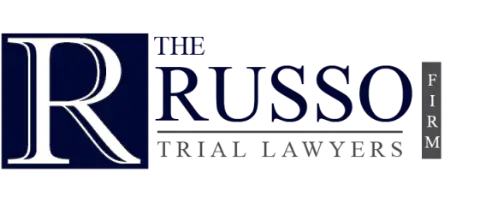Summary:
- Enfamil baby formula products were recalled due to contamination with Cronobacter sakazakii
- Cronobacter sakazakii is a rare and dangerous bacteria that can cause sepsis and meningitis in infants
- Similac baby formula products were recalled in 2022 for causing infant deaths through exposure to Cronobacter sakazakii
- Liquid formula is safer and more sterile than powder-based baby formula
Reckitt Benckiser, one of the largest manufacturers of baby formula in the United States, announced earlier this year they would be recalling two large batches of their Enfamil baby formula product. These batches could have presented a life-threatening risk to infants due to cross-contamination with the dangerous bacteria Cronobacter sakazakii.
This comes after Abbott Nutrition recalled its baby formula products in 2022 because of contamination with the same bacteria. The Food and Drug Administration has concluded that more research must be conducted on Cronobacter sakazakii to identify what makes the rare bacteria so dangerous and how to better prevent it from contaminating baby formula.
Enfamil Baby Formula Product Recalled Because of Bacterial Contamination
Recently, Enfamil baby formula products from Reckitt Benckiser have come under scrutiny in product liability lawsuits for causing necrotizing enterocolitis (NEC). Separate from that issue, Reckitt Benckiser has had to recall two large batches of Enfamil baby formula due to contamination by the dangerous and rare bacteria Cronobacter sakazakii.
The company announced in February 2023 that it would recall about 145,000 ProSobee Simply Plant-Based Infant Formula cans. The reason for the recall is that the bacteria can cause life-threatening impacts on babies, as evidenced by the deaths caused by the bacteria when it contaminated Abbott Laboratory products in 2022.
The products at risk of contamination were the 12.9 oz containers manufactured between August and September 2022. Customers should check to ensure they are not giving their babies formula from the two recalled batches. They should check the bottom of the can to check for the number 300871214415 below the barcode and an expiration date of March 1, 2024.
What Has Reckitt Benckiser Said About the Enfamil Baby Formula Recall?
Reckitt Benckiser has revealed some information from their internal investigation into the cross-contamination of their Enfamil baby formula. They have revealed that no illnesses have been reported due to a baby using baby formula from the two recalled batches (ZL2HZF and ZL2HZZ).
According to the company, all other batches have tested negative for Cronobacter sakazakii. They believe this contamination to be an isolated incident but still want consumers to dispose of or return any products from the contaminated batches.
A representative from Reckitt Benckiser has released a statement about the investigation into Emfail’s bacterial contamination, “After a thorough investigation, we have identified the root cause, which was linked to material from a third party. We have taken all appropriate corrective actions, including no longer sourcing this material from the supplier.”
What is Cronobacter Sakazakii?
Cronobacter sakazakii is a dangerous and life-threatening bacteria that contaminated Enfamil and led to the product recall. It generally lives in dry foods, including powdered milk, starches, herbal tea, and powdered baby formula.
Infections caused by this bacteria are extremely rare, with only two to four cases reported to the Centers for Disease Control (CDC) every year. However, someone can suffer severe life-threatening health effects from a Cronobacter infection.
Young infants in their first two months of life can suffer Cronobacter infections due to their weak immune systems. It can cause life-threatening health conditions, such as sepsis and meningitis. These health conditions can put an infant’s life at risk and require significant treatments that can have high medical costs.
This is the Second Baby Formula Recall in the Last Year
Reckitt Benckiser’s Enfamil recall is not the first that had to do with Cronobacter contamination. In 2022, Abbott Laboratories had to recall their Similac PM 60/40 product due to Cronobacter contamination. There were two reported wrongful deaths of infants after using the product that led to the product recall.
After the product recall, Florida parents filed a class action lawsuit against Abbott Laboratories. They alleged that Abbott Laboratories baby formula products were sold despite bacterial contamination and exposed children to life-threatening health conditions.
Jonathan Gdanski, the lawyer representing the Florida parents, released a statement regarding Abbott Laboratories’ liability: “Abbott’s failure to use reasonable care regarding these infant formula products – and then failing to warn the public after recognizing that a problem within their facility existed is reckless and dangerous.”
Contact The Russo Firm for Help With Your Baby Formula Lawsuit
Parents whose children suffer Cronobacter infections from baby formula products can file product liability lawsuits. Hiring a lawyer can help, as they can use their experience and expertise to handle the lawsuit process.
The product liability lawyers at The Russo Firm can help parents pursue compensation for medical bills, lost wages, and pain and suffering. We offer free consultations to show how our attorneys can offer personalized legal counsel advice to help you through this stressful process. Contact us today at (561) 270-0913 or leave a message on our online contact page.
Frequently Asked Questions About the Baby Formula Recall
What Does the Enfamil Recall Have to Do With the NEC Baby Formula Lawsuits?
Recently, many parents have filed NEC baby formula lawsuits for Enfamil and Similac, causing severe gastrointestinal disorders in premature infants. There have been hundreds of lawsuits filed against Abbott Laboratories and Mead Johnson for their negligence in causing necrotizing enterocolitis.
However, this product recall has nothing to do with the NEC baby formula lawsuit. The Cronobacter sakazakii that contaminated Enfamil has no provable connection to causing NEC. Parents whose children suffer severe medical conditions or wrongful death from contaminated baby formula will have to pursue compensation in separate lawsuits.
Is Liquid Baby Formula Formula Safer Than Powder Formula?
The health issues that have arisen for infants and premature babies have all come from powder baby formulas. Powder-based baby formulas are not sterile, meaning they can present health issues and expose babies to germs and bacteria. Sterilized liquid formulas are a safer option for parents looking to give their infants baby formula without germs.
How Can Parents Prevent Cronobacter Infections from Baby Formula in Their Children?
Parents should ensure that they handle baby formula properly to prevent their infants from suffering Cronobacter infections. After buying feeding items, they should make sure to clean, sanitize, and store them in safe areas.
They should also not leave formula scoops out on kitchen counters where they can come into contact with germs and bacteria. Parents should also keep lids clean and seal baby formula containers after giving formula to their infant.

